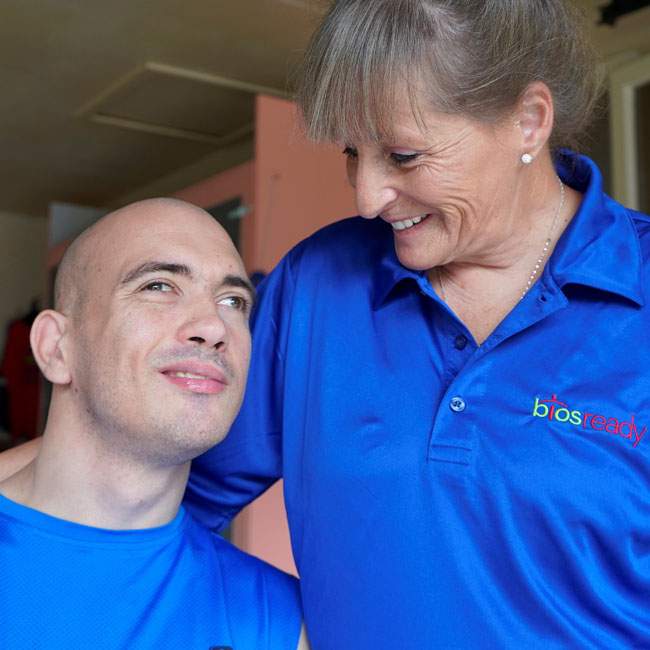Gentleness has a bad rap. In our “pull yourself up by your bootstraps” society, when we think of gentleness, we tend to think: pushover, wimpy, ineffective. While our hearts may tell us that being gentle with people is the both the right and the healthy thing to do, the input we get from news, social media and sometimes friends and family is quite the opposite.
The fact is, gentleness is good for us and it’s good for the people we love and support. However, putting gentleness into action is not always so easy. Being busy, rushed, tired, stressed and stretched can result in our doing and saying things that are less than gentle and border or harsh or even violent. And frankly, ours is a busy, rushed, tired, stressed and stretched world!
A school of thought in the disability world, described by John McGee is called “Gentle Teaching.” We definitely consider the work we do with people with disabilities as teaching, but we may not think about the supports we provide to people with dementia as “teaching,” per say. Nonetheless, the principles of Gentle Teaching are valuable principles to bring to all our interactions, including in our work with the people we support.
McGee describes A Spirit of Gentleness as being about …
- Our non-violence
- Our sense of social justice
- Our expression of unconditional value
- Our warmth to those who are cold
- Our creating an environment where people feel Safe, Loved, Loving and Engaged
- Our creating an environment of companionship with people who are marginalized
- Our promoting community in a way that is meaningful for the person we support
Our decision to be side-by-side with those who are devalued
(Adapted from John McGee’s: A Spirit of Gentleness)
Let’s take a deeper look at each of these.
Non-violence: When we speak of violence, we must consider it from the perspective of the person who is receiving the interaction, rather than the perspective of our intention. For people who have histories of trauma from rejection, judgement, bullying, abuse and neglect (most people with disabilities) or people whose brains are processing information quite differently from ours (most people with dementia) actions that trigger fear may be quite different from what triggers fear in you or me. For our purposes, we can think about acts of violence being anything that overtly or tacitly triggers a fear response in another person.
Social justice. Social justice is essentially an organized alliance that results in practices and policies that benefit the whole community, including people who are typically marginalized, such as people with disabilities. It’s not possible for people to have a “safe and loved” life experience if they are excluded from the benefits that others in the community enjoy.
Unconditional value. People have inherent value simply because they are human and there is a long human ethical tradition of upholding this standard: In yoga it is said, “The light in you is the same light in me … and we are one.” In the Christian tradition, believers are instructed to “see the light of Christ” in all beings. People with disabilities are not less than other people.
Warmth. Again, our traditional ethical teachings such as the Golden Rule, teach “do unto others as you would have them do unto you.” Responding to cold with warmth and love, changes the game. It creates a context of safety for a person who has lived a life of rejection.
Environment. As carers and supporters of other people, we have a great deal of influence over the environment in which our interactions occur. We have the opportunity to use our hands, our words, our eyes and our presence to let people know that they are safe with us and that we value them.
Companionship/Side-by-side. Companionship with people who are marginalized is about actually experiencing life side-by-side with people. This is where true empathy is developed.
Meaningful community. What is meaningful for each person is based on what is Important TO and FOR them. Sometimes meaningful community begins with one single person with who a traumatized person feels safe and loved. It’s our job as caregivers and supporters to develop a plan for intentionally expanding that community.
Dr. McGee’s Gentle Teaching also teaches that each one of us carry around all the tools we need to help create environments where people can feel safe and loved. These tools are our:
| *Click on any one of the tools for further explanation. |
In short, as we say around Bios, “All people have value.” Gentleness is the best, most accessible way we have of showing people they are valued and loved and helping them feel safe so that they can try new things and have new experiences and craft a vision of a life that matters to them.
